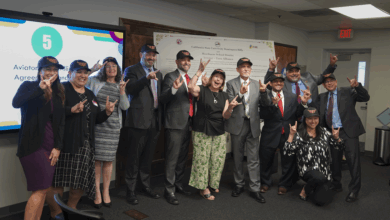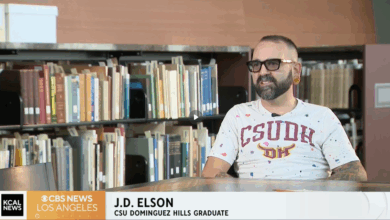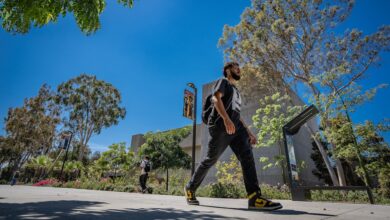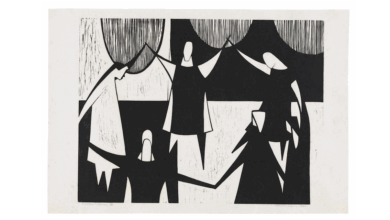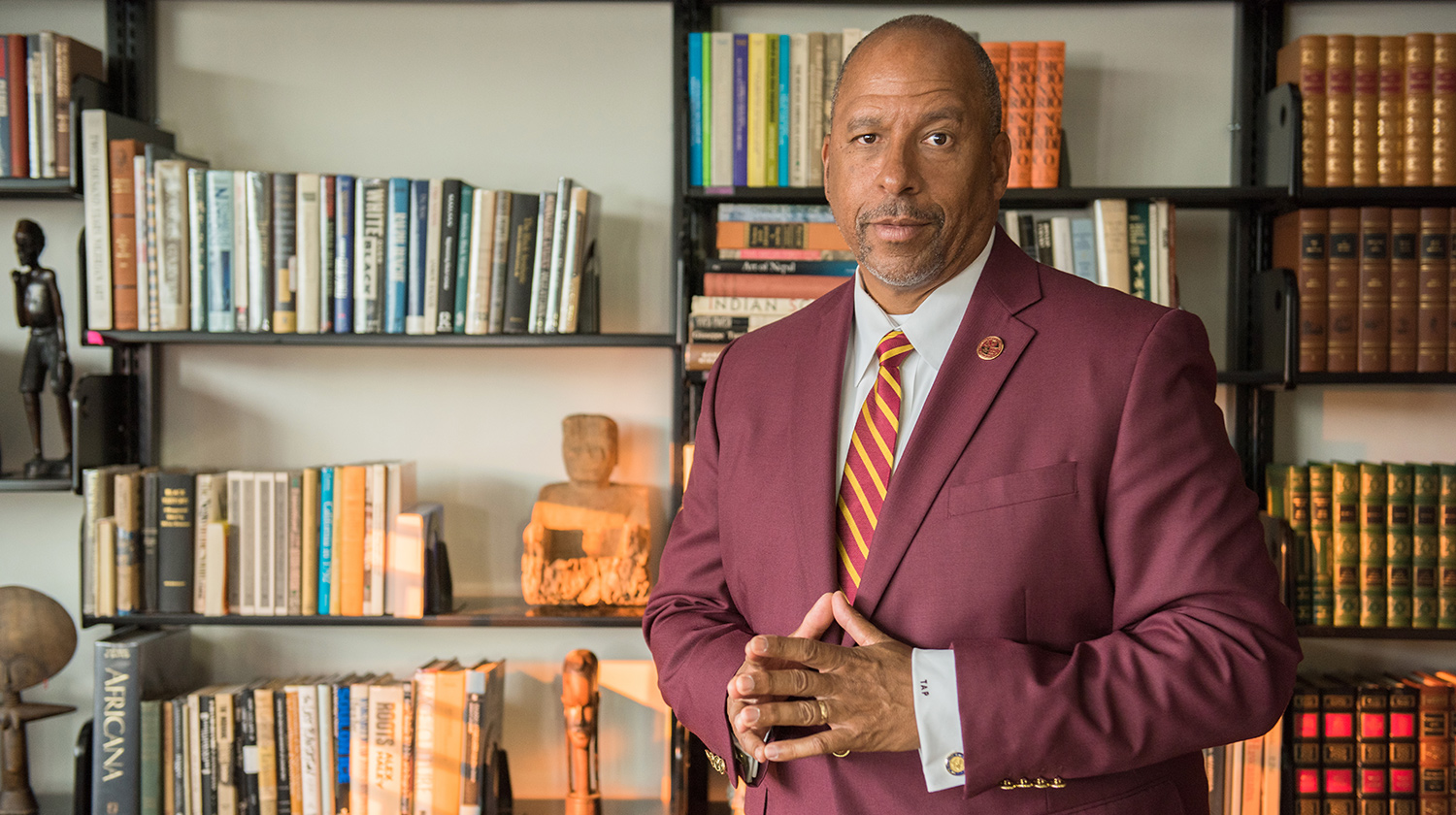Our faculty members participate in conferences around the world, conduct groundbreaking research, and publish books and journal papers that contribute to their field and highlight their expertise. We feature those accomplishments and more in this section. To share faculty news, email ucm@csudh.edu.
College of Arts & Humanities
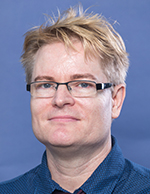 Brian Jarrett, professor and chair of negotiation, conflict resolution, and peacebuilding, was a panelist at the Fact-finding Missions & Truth and Reconciliation Commissions Conference, put on by Leiden University in The Haig. The panel discussed how fact-finding missions and truth and reconciliation commissions have been playing a key role in the acknowledgment of serious violations committed against indigenous peoples, as well as their role in bringing justice to the victims of (international) crimes. The panelists also addressed the possibility of using the evidence collected by the commissions, as well as their findings and recommendations as trial evidence before international courts and tribunals.
Brian Jarrett, professor and chair of negotiation, conflict resolution, and peacebuilding, was a panelist at the Fact-finding Missions & Truth and Reconciliation Commissions Conference, put on by Leiden University in The Haig. The panel discussed how fact-finding missions and truth and reconciliation commissions have been playing a key role in the acknowledgment of serious violations committed against indigenous peoples, as well as their role in bringing justice to the victims of (international) crimes. The panelists also addressed the possibility of using the evidence collected by the commissions, as well as their findings and recommendations as trial evidence before international courts and tribunals.
College of Business Administration & Public Policy
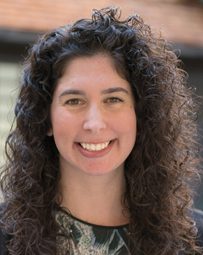 Research by Shari Berkowitz, associate professor of criminal justice administration, was cited in the American Psychological Association’s amicus brief to the Texas Court of Criminal Appeals in support of the stay of execution of Melissa Lucio. Berkowitz was among a team of researchers who had published findings on sleep deprivation and false confessions in The Proceedings of the National Academy of Sciences in 2016. For more about the Lucio case and evidence considered, read The New York Times’ overview.
Research by Shari Berkowitz, associate professor of criminal justice administration, was cited in the American Psychological Association’s amicus brief to the Texas Court of Criminal Appeals in support of the stay of execution of Melissa Lucio. Berkowitz was among a team of researchers who had published findings on sleep deprivation and false confessions in The Proceedings of the National Academy of Sciences in 2016. For more about the Lucio case and evidence considered, read The New York Times’ overview.
College of Education
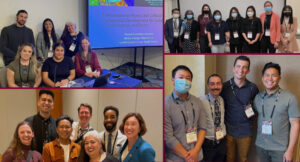 The College of Education represented CSUDH with a cohort of twelve faculty members and six alumni at the 2022 American Educational Research Association (AERA) annual meeting. AERA is the world’s largest gathering of education researchers and a showcase for groundbreaking, innovative studies in an array of areas.
The College of Education represented CSUDH with a cohort of twelve faculty members and six alumni at the 2022 American Educational Research Association (AERA) annual meeting. AERA is the world’s largest gathering of education researchers and a showcase for groundbreaking, innovative studies in an array of areas.
This year’s theme was “Cultivating Equitable Systems for the 21st Century,” and among the topics that were discussed were the residual effects of what the conference organizers refer to as the four pandemics: the COVID-19 pandemic, the pandemic of systemic racism, the economic crisis, and the climate crisis. View a full list of all College faculty and alumni presentation topics and abstracts here.
Recent quotes and/or interviews in the media from faculty
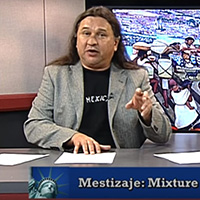 Michael Fraga, lecturer of Chicano/a studies and interdisciplinary studies, was interviewed by USC Annenberg about indentured servitude within British colonies in India and China for an article about the modern day impacts of colonialism.
Michael Fraga, lecturer of Chicano/a studies and interdisciplinary studies, was interviewed by USC Annenberg about indentured servitude within British colonies in India and China for an article about the modern day impacts of colonialism.
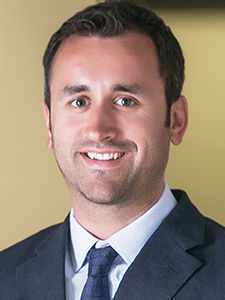 “There is strong evidence that telework increased substantially during the COVID-19 pandemic–from 5-15% up to 45-55% of workers. This appears to have enabled households to move and say goodbye to dense and expensive urban areas that were close to workplaces but no longer offered the same amenities due to pandemic-related closures. Mid-sized markets offered more space, cheaper rents, or maybe the opportunity to purchase a home.” – Fynnwin Prager, associate professor of public administration, gave RentCafe his expert analysis about the recent trend of renters preferring smaller metro areas.
“There is strong evidence that telework increased substantially during the COVID-19 pandemic–from 5-15% up to 45-55% of workers. This appears to have enabled households to move and say goodbye to dense and expensive urban areas that were close to workplaces but no longer offered the same amenities due to pandemic-related closures. Mid-sized markets offered more space, cheaper rents, or maybe the opportunity to purchase a home.” – Fynnwin Prager, associate professor of public administration, gave RentCafe his expert analysis about the recent trend of renters preferring smaller metro areas.
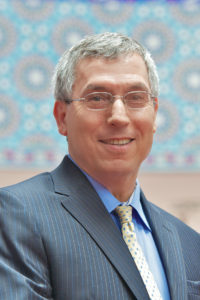 “Western sanctions on Russia, over the conflict in Ukraine, have led to historic high oil prices, which Biden needs to bring down ahead of the midterms, where the U.S. president risks losing his democratic majority.” – Hamoud Salhi, associate dean of international education and senior international officer, appeared on CGTN to speak about the Russia-Ukraine conflict and Biden’s relationship with the Middle East.
“Western sanctions on Russia, over the conflict in Ukraine, have led to historic high oil prices, which Biden needs to bring down ahead of the midterms, where the U.S. president risks losing his democratic majority.” – Hamoud Salhi, associate dean of international education and senior international officer, appeared on CGTN to speak about the Russia-Ukraine conflict and Biden’s relationship with the Middle East.
He also appeared on the news program “The Heat” to discuss the two-month truce in Yemen brokered by the United Nations. Since 2015, the war in Yemen has killed tens of thousands of people and created the world’s worst humanitarian crisis.


